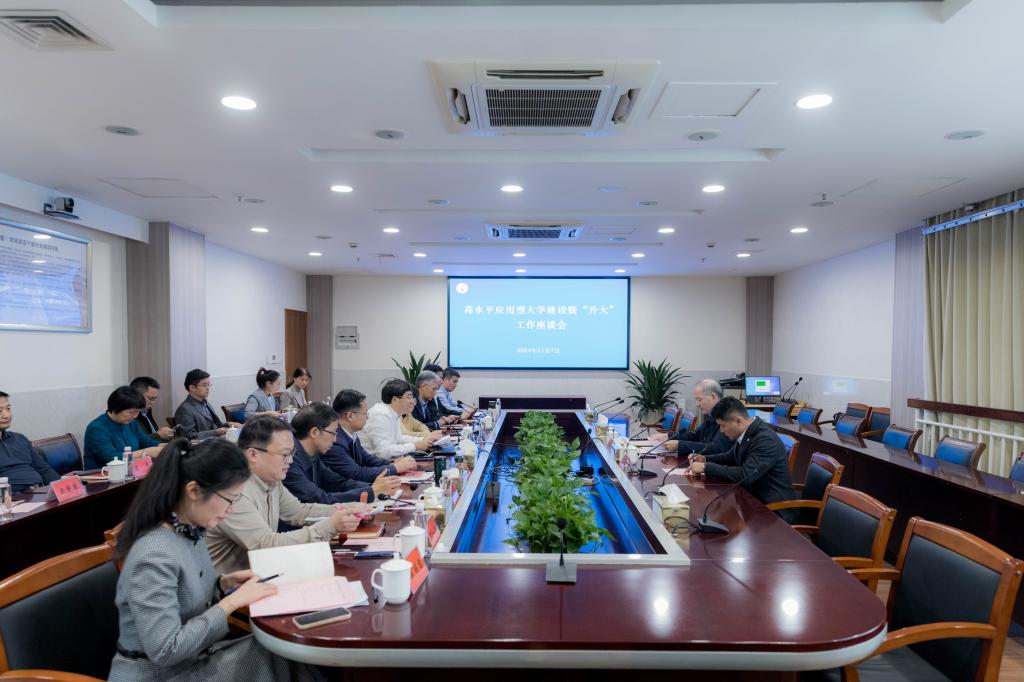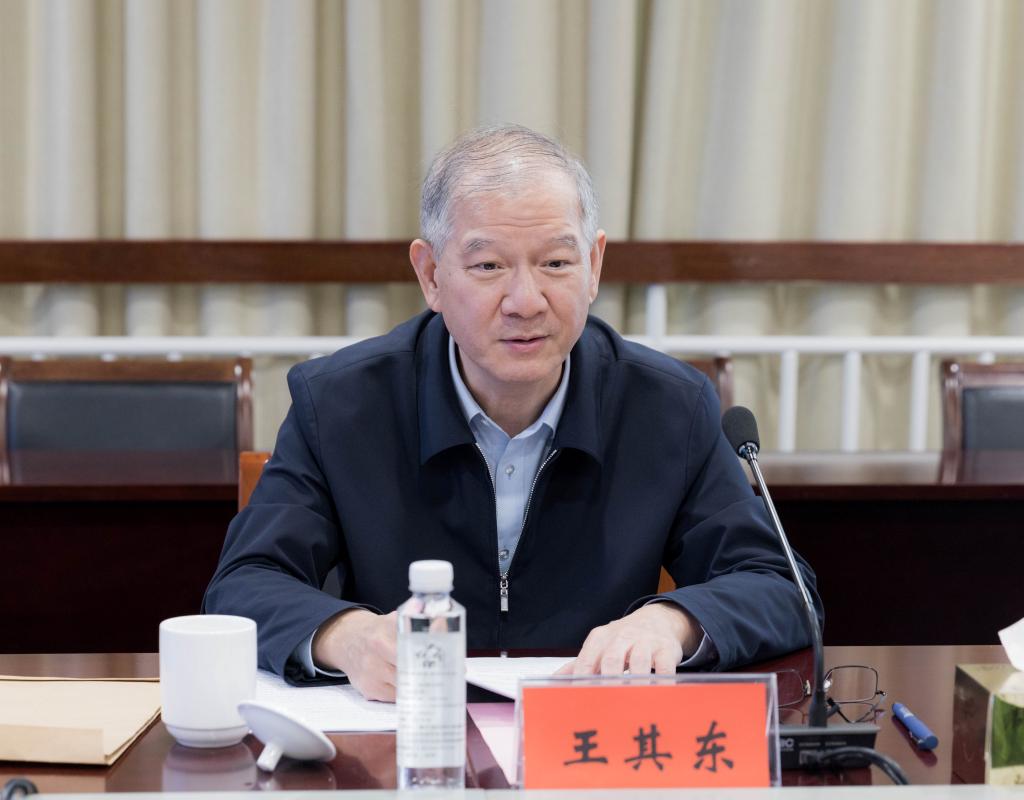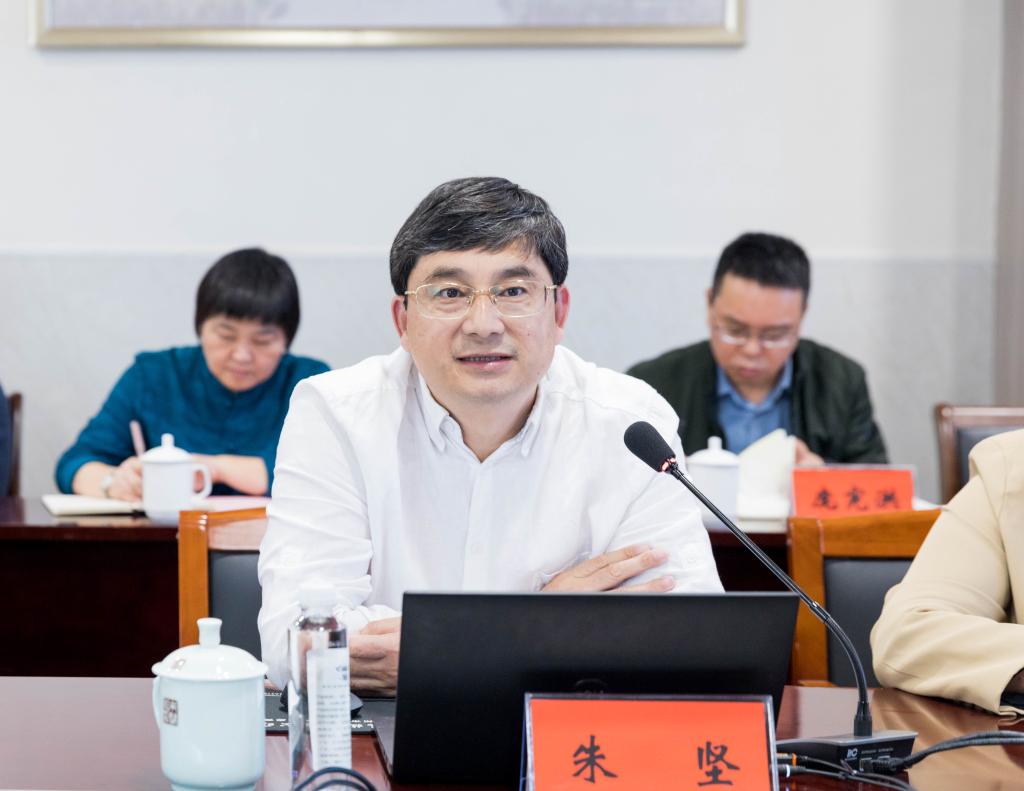On the afternoon of November 7th, TU held a symposium on the university upgrading and the construction of a high-level application-oriented university at the first conference room of the administrative building on Jiangjiang Campus. Professor Wang Qidong, Secretary of the CPC Committee of Hefei University, was invited to exchange his ideas. Present at the meeting were the members of the university leadership and relevant department leaders, with Zhu Jian, Secretary of the CPC TU Committee, presiding over the meeting and delivering a speech.

At the symposium
Zhu Jian, on behalf of the university, warmly welcomed Wang’s arrival and expressed his appreciation for the achievements of Hefei University. After briefly introducing the general situation, Zhu presented our university’s unique features and achievements in building an application-oriented university from various perspectives.

Wang Qidong, Secretary of the CPC Committee of Hefei University, provides guidance and exchanges
Fully affirming the work in university-city community, integration of industry and education, talent introduction and cultivation, and scientific research, Wang indicated that TU has accurate positioning, explicit ideas, clear goals and distinct characteristics in running the university. Subsequently, he shared valuable experience of Hefei University’s upgrading and construction of an application-oriented university in terms of indicator interpretation, benchmark construction, and local support.
The participants discussed with Wang based on their respective areas and issues of concern, further consolidating consensus and exploring the path of high-quality reform and development of application-oriented universities.

Zhu Jian, Secretary of the CPC TU Committee, presides and delivers a speech
Zhu expressed sincere thanks to Secretary Wang for his careful guidance and valuable suggestions. He pointed out that Secretary Wang’s advice provided useful insights for the university to concentrate the development direction and identify the key work, and provided important guidance for the university to enter a new stage of development and steadily promote the construction of a high-level application-oriented university.